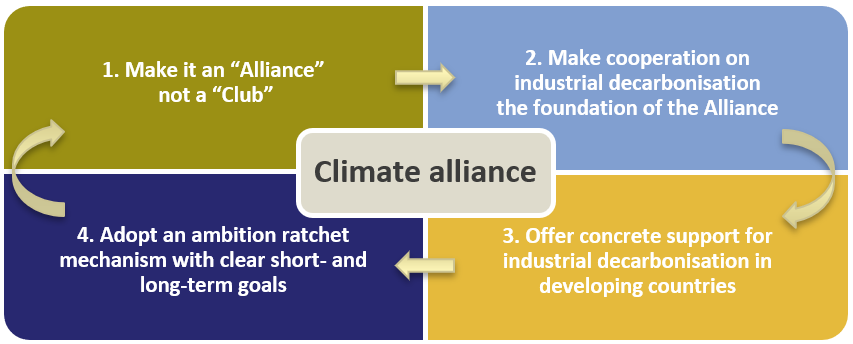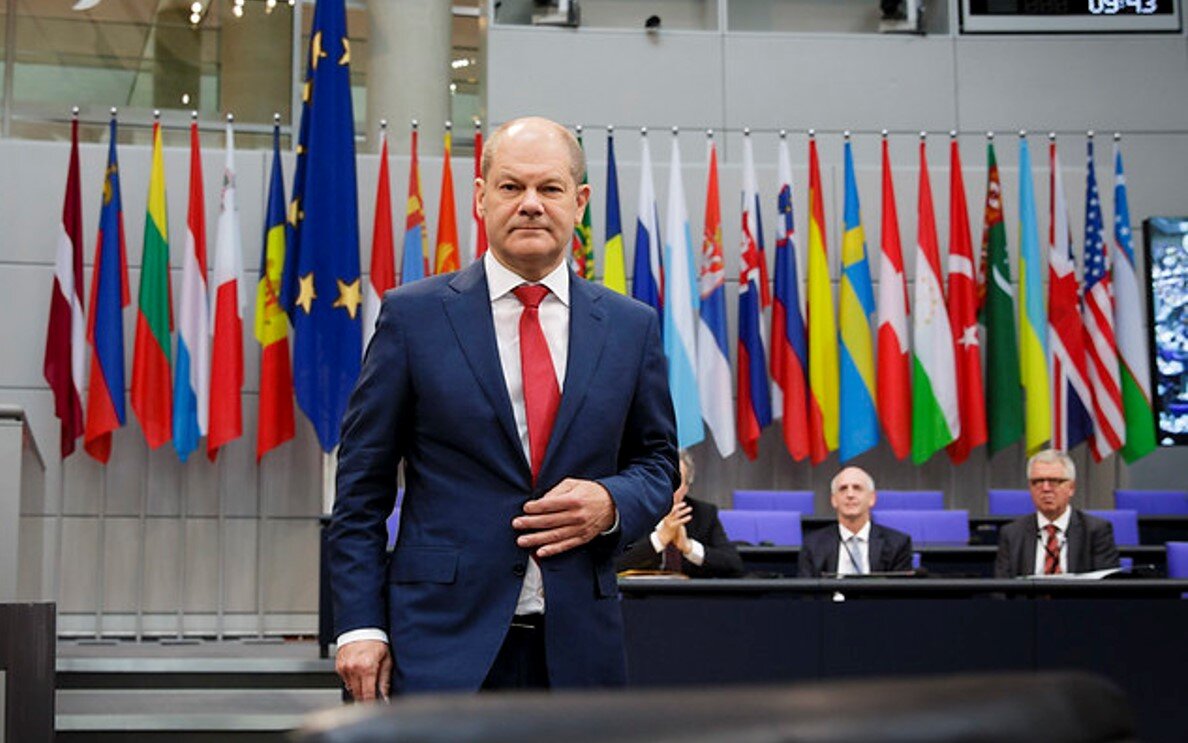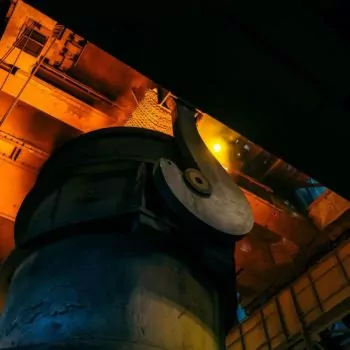This E3G briefing focuses on the politics of climate clubs as accelerators of industrial decarbonisation. First, it assesses the case for establishing a club. Then, it evaluates propositions for how to design clubs. Finally, it sets out four recommendations for how best to ensure that a “club approach” helps accelerate cooperation on global industrial decarbonisation rather than becoming a source of additional tension.
Industrial sectors such as steel, cement and chemicals account for 17 to 20 per cent of global greenhouse gas emissions. As a result of their trade-exposed nature, they have largely been exempt from the most serious climate change efforts. Policymakers have been reluctant to introduce policies that could affect their competitiveness and risk carbon leakage.
However, as we head into a new phase of Paris Agreement implementation, industry decarbonisation has moved up the international policy agenda. In this context, the idea of establishing “climate clubs” between ambitious countries has recently re-emerged. Proponents see it as a solution to accelerate industrial decarbonisation while addressing the trade and competitiveness concerns that have long held back policy efforts in this space.

The most serious proposal for establishing a climate club to date has come from the German government. In August 2021, several German ministries published a white paper calling for an “alliance for climate, competitiveness and industry”.
As the German government starts to define what this means for their G7 agenda, this briefing unpacks some of the key questions on how this could work in practice: What exactly is a climate club? Do we really need one? How does it relate to parallel tools such as carbon border adjustment mechanisms (CBAMs)? What are the potential benefits and risks?
Read the full E3G briefing on climate clubs to accelerate industrial decarbonisation here.



